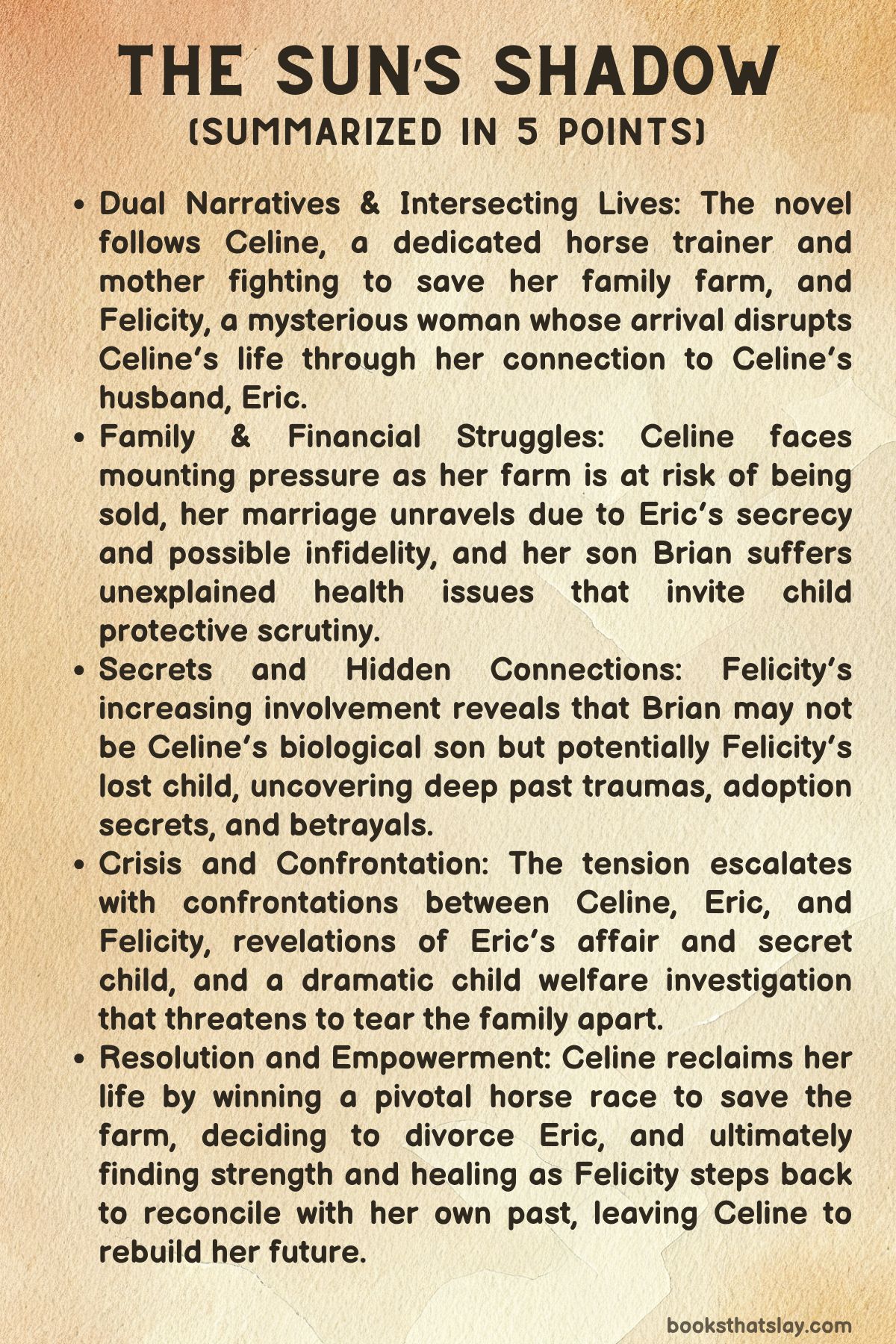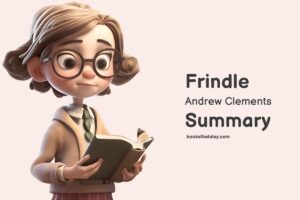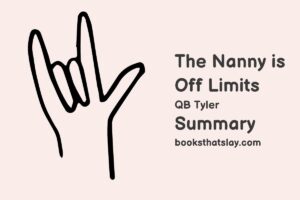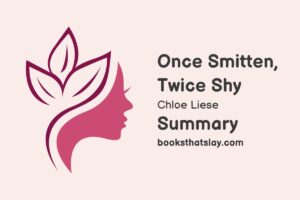The Sun’s Shadow Summary, Characters and Themes
The Sun’s Shadow by Sejal Badani is a richly drawn story about motherhood, betrayal, identity, and healing. Centered on a woman named Celine—a gifted horse trainer, devoted mother, and determined survivor—the novel explores the emotional turmoil that unravels her family when her young son is diagnosed with leukemia.
Through dual perspectives and a tapestry of past and present, the novel captures the intensity of familial bonds, the hidden costs of secrets, and the power of forgiveness. Celine’s fight to save her son unfolds alongside her own journey toward empowerment and emotional freedom, while other characters reckon with the consequences of choices made in silence.
Summary
Celine lives in Boston, where she devotes herself to training thoroughbreds and raising her twelve-year-old son Brian. Her love for Brian anchors her, especially as she juggles the demands of managing the farm—land she rents from her estranged Uncle Greg.
The threat of losing the farm looms large when Greg reveals he’s selling it and invokes a lease clause that forces Celine to either buy it within a month or forfeit it. Kaitlyn, her loyal friend and business partner, suggests that Celine return to competitive racing as a fast way to earn money, but it’s a world Celine left behind long ago.
At home, her marriage to Eric has become cold and distant. Although once supportive, Eric has grown aloof despite being physically present more often.
During his company’s annual party, Celine is unsettled by Eric’s closeness to Felicity, a beautiful new arrival who seems to have a peculiar interest in Brian. Their cordial conversation reveals little, but Celine’s intuition is piqued.
That same night, after an unexpectedly intimate encounter with Eric, her world shatters when Brian suffers a seizure. At the hospital, bruises on Brian’s body raise concerns about possible abuse.
Celine is horrified—not just by the seizure, but by the implications of the injuries, which might jeopardize her ability to stay with her son during treatment.
Brian’s symptoms escalate, and Dr. Mendoza raises the possibility of leukemia.
As tests are conducted and fears confirmed, Celine is consumed by denial, dread, and guilt. The sterile hospital environment becomes her emotional battleground.
She is desperate to be strong for Brian, even as her life outside the hospital begins to unravel. Eric, once her partner in all things, now feels like a stranger.
When he confesses that he has another son—Justin—from a one-night affair before their marriage, the betrayal cuts deeply. That woman, Felicity, is the same woman from the party, and the pieces fall into place: Felicity came to Boston with the intention of reconnecting with Eric and, perhaps, reshaping their shared history.
The plot thickens when it is revealed that Justin, now a teenager, may be Brian’s only hope as a stem cell donor. Celine must wrestle with her anger and hurt while facing the devastating reality that the boy who represents the worst lie in her marriage could also be the one who saves her son’s life.
Meanwhile, Felicity is forced to confront her own past decisions. She has raised Justin as a single mother, never revealing the truth about his father.
Her fierce protectiveness over Justin leads to conflict as she initially resists the idea of subjecting him to medical procedures. But her internal battle is more than maternal fear—it’s the crumbling of the carefully curated life she built around secrets.
Celine’s emotional unraveling is paralleled by her reawakening. As she watches Brian endure painful treatments and watches her marriage corrode, she finds support in an unexpected place: Austin, a childhood friend who returns as a potential buyer of the farm.
Their reconnection stirs long-buried feelings, and Austin’s presence becomes a source of strength. He represents a time before betrayal and a vision of the future built on honesty and mutual respect.
Austin’s reappearance also triggers memories of Celine’s early trauma—arriving at the farm with her mother, under the oppressive rule of Uncle Greg, abandoned by her father. These memories fuel her resolve not just to save Brian, but to reclaim her life.
As Justin’s tests reveal him to be a partial donor match, new tensions emerge. Felicity, caught between her duty as a mother and her conscience as a human being, initially refuses to allow Justin to undergo the transplant.
The conflict drives a wedge between her and Justin, who begins to see through her deceptions. Their relationship reaches a breaking point when Justin confronts her, naming the betrayal and expressing his growing independence.
Felicity’s control begins to erode, and she must decide whether her love means holding on or letting go.
Celine, meanwhile, begins to see Felicity in a new light. Though they are connected by betrayal and circumstance, Celine recognizes the other woman’s anguish and the fierce love that drives her.
Celine’s journey shifts from one of revenge to one of acceptance. She symbolically sheds her past—burning her wedding ring and Brian’s hospital bracelet—and starts again.
She begins training Recluse for a high-stakes race, determined to secure the farm for herself. When she wins, it is not just a financial victory but a personal one: proof of her capability, her strength, and her right to define her own life.
Felicity eventually consents to the transplant, moved by her son’s maturity and empathy. Justin, too, grows through the ordeal.
He chooses to donate to Brian, not out of obligation, but out of his own moral compass. In doing so, he claims his identity—no longer just Felicity’s son or Eric’s secret child, but his own person.
His decision transforms him from an unintended consequence of a mistake into a bridge between fractured families.
Eric, once the center of these intertwined lives, finds himself increasingly on the margins. His efforts to repair his relationship with both Celine and Felicity fall short, but his final actions—apologies, acknowledgments, and gratitude—reflect a man coming to terms with the damage he caused.
His sons, however, take center stage. Brian and Justin, bonded not just by blood but by mutual sacrifice, begin forging a relationship free of the bitterness that defined their parents’ lives.
In the final chapters, both women choose new paths. Felicity accepts a CFO position in California, symbolizing her decision to stop waiting for love from Eric and start prioritizing herself.
Her mended relationship with Justin becomes her anchor. Celine buys the farm and gifts Austin’s family land back to him, an act of both closure and love.
Her relationship with Austin deepens, not as a rebound from Eric, but as a choice made in strength and wholeness.
The story concludes on a note of hope and transformation. These characters, once defined by secrets and regrets, choose openness, compassion, and the possibility of a better future.
The fractured families come together, not as a conventional unit, but as a constellation of individuals bound by shared truth, acceptance, and love. The Sun’s Shadow is not about erasing pain—it is about facing it, growing from it, and choosing to live forward.

Characters
Celine
Celine stands as the emotional cornerstone of The Suns Shadow, embodying the strength, resilience, and vulnerability of a woman who has shouldered more than her fair share of life’s burdens. A skilled horse trainer, she is deeply connected to the land and the legacy of the farm she has struggled to make her own.
The farm is not just her livelihood; it is her sanctuary, her link to her childhood, and a manifestation of the autonomy she has carved out despite a history marked by trauma and abandonment. Her early life under the shadow of her domineering Uncle Greg and the silence of an absent father shaped her quiet defiance and her instinct to protect those she loves.
These instincts are most powerfully seen in her role as a mother to Brian, where her devotion borders on ferocity.
As Brian’s illness plunges her into a terrifying spiral of uncertainty and helplessness, Celine transforms. Her inner turmoil over her failing marriage and the eventual shattering betrayal by Eric force her to reexamine the illusions she has been maintaining.
Yet even in heartbreak, Celine retains a fierce grace. Her evolution is marked not by bitterness but by resolve, by a deepening awareness of her worth.
Her growing relationship with Justin, once a painful reminder of Eric’s betrayal, becomes one of understanding and compassion. Ultimately, her victory on the racing circuit and her reclaiming of the farm symbolize not just a personal triumph but a reclamation of her identity.
Her journey is about more than surviving—Celine emerges as a woman who refuses to be broken, who finds clarity in chaos, and who chooses to live fully on her own terms.
Felicity
Felicity’s character is one of the most complex and layered in The Suns Shadow. At first glance, she appears polished, composed, and confident—a successful executive with a tightly managed life.
But beneath this composed exterior lies a deep reservoir of loneliness, regret, and longing. As the mother of Justin and the other woman in Eric’s secret past, Felicity carries the heavy burden of having built her life around a hidden truth.
Her love for Eric, though never fully reciprocated, colors many of her decisions, from her move to Boston to her attempts at forming a bond with Celine. She is not malicious, but her instinct to protect her own interests—especially those of Justin—often puts her at odds with others.
Felicity’s maternal instincts define her character. Her fierce loyalty to Justin, while admirable, can sometimes cross into control.
Her resistance to the bone marrow donation is not born of spite, but fear—fear of losing the one person who defines her world. As her emotional defenses are stripped away through her confrontations with Eric, Justin, and Celine, Felicity is forced to reckon with the truth about herself: that her strength has often masked deep-seated insecurities.
Her arc is one of redemption and release. By finally telling Justin the truth, by stepping aside to allow him to make his own choice, and by choosing a new professional path in California, she reclaims a sense of self that is no longer dependent on the approval or presence of others.
Felicity’s journey is about letting go—of Eric, of the past, and of the need to control—and in doing so, she becomes truly free.
Eric
Eric is the emotional pivot around which much of the tension in The Suns Shadow revolves. As both the husband of Celine and the biological father of Justin, his actions—and inactions—set into motion much of the story’s conflict.
Eric is not a traditional villain; his character is more a study in avoidance, guilt, and the consequences of secrecy. His past mistake—fathering a child with Felicity before marrying Celine—might have been forgivable, but his decision to keep that secret for seventeen years erodes the trust and stability of his marriage.
Throughout the narrative, Eric attempts to play the roles of father, husband, and peacemaker, but he often falls short, paralyzed by his fear of confrontation and his desire to keep the peace.
Despite these flaws, Eric undergoes a subtle but meaningful transformation. He gradually begins to accept responsibility for his choices, acknowledging the damage his silence caused.
His growing involvement in Brian’s treatment, his quiet support of Justin’s decision to donate, and his final conversations with both Celine and Felicity signal a man who is trying, however imperfectly, to make amends. Eric’s ultimate realization is that love is not possession or control—it’s presence, honesty, and sacrifice.
By letting go of his past romantic entanglements and choosing to support both women in their independent journeys, Eric finally fulfills his role not as a patriarch, but as a man who values the people around him more than his own ego.
Brian
Brian, though young, is a powerful emotional force in The Suns Shadow. At just twelve years old, he embodies innocence, resilience, and the unyielding bond between mother and child.
His diagnosis with leukemia is the story’s central crisis, one that unites and divides the adults around him. Through Brian’s illness, the narrative explores the fragility of life and the purity of a child’s trust.
Despite the fear and pain he endures, Brian remains a grounding presence for Celine, a symbol of hope and a reason to persevere. He is also a bridge between two fractured families, his illness indirectly facilitating the truth about Justin’s paternity and drawing everyone into a moral reckoning.
What makes Brian’s character particularly poignant is his capacity for acceptance. He does not rail against his diagnosis with anger; instead, he faces it with the quiet strength that seems inherited from his mother.
His friendship with Justin, especially in the aftermath of discovering they are brothers, reveals his open heart and his ability to forgive. Brian’s final moments in the narrative—recovering, forming a bond with Justin, and witnessing his mother’s resurgence—signal not just his physical healing but the beginning of a new, more honest chapter for his entire family.
He is the quiet catalyst whose pain reveals everyone’s truth.
Justin
Justin’s journey in The Suns Shadow is one of identity, agency, and emotional awakening. As a teenager suddenly confronted with the truth about his parentage, Justin must navigate a rapid dismantling of everything he thought he knew.
His initial reactions—disbelief, withdrawal, anger—are raw and authentic. He feels betrayed by Felicity, confused by Eric’s distance, and unsure of how to relate to Celine, whose son now depends on him for survival.
Yet within this emotional upheaval, Justin demonstrates a remarkable emotional intelligence. His decision to speak with Celine, to understand Brian’s condition on his own terms, and eventually to agree to the bone marrow transplant, shows a maturity far beyond his years.
Justin’s emotional development becomes a crucial subplot in the novel. Through his confrontation with Felicity, he sheds the role of the protected child and steps into his own personhood.
His growing relationship with Brian is not driven by obligation, but by a sincere desire to help. In doing so, Justin redefines his identity—not as a pawn in his parents’ past mistakes, but as a young man capable of empathy, courage, and decisive action.
His encouragement of Felicity’s job opportunity and his affectionate farewell to Brian mark the beginning of a new future, one where he is no longer defined by secrecy or deception. Justin becomes the embodiment of hope—the possibility that something beautiful and strong can grow from the fractures of the past.
Austin
Austin serves as a quiet but stabilizing force in The Suns Shadow, a link to Celine’s past and a symbol of what love built on mutual respect and history can look like. As a former childhood confidant and the potential buyer of Celine’s farm, his reappearance in her life comes at a moment of immense turmoil.
While he initially seems to complicate matters, his presence ultimately becomes an emotional anchor for Celine. Their interactions are laden with unspoken understanding, unresolved tension, and eventually, rekindled affection.
Austin does not press for more than Celine can offer, which stands in contrast to Eric’s controlling emotional detachment.
His character is marked by quiet integrity and patience. He respects Celine’s boundaries, supports her ambitions, and offers her a vision of a life rooted not in pain or secrets, but in shared values and healing.
The symbolic gesture of returning the farm to Austin’s family is not just a financial transaction—it is an emotional one, rooted in love and trust. Their eventual romantic connection is not presented as a grand passion, but as a quiet affirmation of belonging, a second chance that feels earned and authentic.
Austin represents the kind of love that grows from mutual care and emotional safety—a fitting counterpart to Celine’s journey toward self-empowerment.
Themes
Maternal Love and the Burden of Sacrifice
Celine’s identity is inseparable from her role as a mother, and throughout The Suns Shadow, her decisions are governed by an intense, unwavering devotion to her son Brian. Her maternal instincts are not just protective—they’re fiercely active.
When Brian begins exhibiting symptoms of leukemia, Celine doesn’t hesitate to abandon any semblance of stability in her life to stand guard over her child. Her concern extends beyond medical treatment; she seeks to shield Brian emotionally and psychologically from the trauma of illness.
This depth of maternal love becomes the driving force behind nearly every emotional beat in the novel. Even when facing Felicity, the woman who threatens her marriage and stability, Celine’s focus remains on Brian’s welfare.
Her desperation to find a bone marrow donor, to navigate a crumbling marriage, and to make critical choices about the farm—her only source of livelihood—underscores the all-consuming nature of a mother’s love. The novel doesn’t romanticize this devotion; instead, it presents it as raw, agonizing, and deeply human.
Celine’s sacrifices are not heroic gestures—they are reflexive, painful responses to a child’s suffering. And yet, they become acts of empowerment.
Through her maternal love, Celine reclaims parts of herself that had been eroded by betrayal and obligation. By the end of the story, her love is no longer just reactive—it becomes a source of transformation, one that enables her to redefine what kind of woman and mother she chooses to be.
Betrayal and the Fracturing of Trust
Trust is broken at multiple levels in The Suns Shadow, and its rupture is neither clean nor easily mended. Eric’s revelation that he fathered a child years ago without telling Celine is not just a betrayal of their marriage—it’s a denial of emotional partnership, an erasure of the shared understanding that underpins any family.
Celine’s devastation is compounded by the realization that Felicity, the woman now orbiting her life, is not a harmless stranger but the mother of that hidden child. The betrayal reverberates outward: from Celine’s inner world, where doubt corrodes self-worth, to the outer networks of relationships that sustain her.
Trust in Eric collapses, but so does trust in the stability of her environment, from the farm she’s about to lose to the quiet assumptions she’s made about her life’s trajectory. The pain of betrayal isn’t just about what was done—it’s about what was withheld.
Similarly, Justin’s discovery that his entire life has been predicated on a lie—that the man he thought absent was, in fact, involved in his orbit all along—fractures his relationship with Felicity. The novel handles these betrayals not as momentary crises but as long-term tremors, ones that rearrange how characters move through the world.
And yet, the narrative doesn’t suggest that betrayal makes reconciliation impossible. Rather, it examines how truth, once unearthed, can provide a foundation not for restoring the past but for building something more honest and resilient in its place.
Identity, Ownership, and the Struggle for Autonomy
Ownership—of property, truth, and one’s own life—emerges as a defining theme for Celine. Her fight to buy the farm is not merely a financial transaction but an existential battle for agency.
The farm represents her personal history, her emotional labor, and her hope for generational legacy. When Greg threatens that security, the conflict becomes a metaphor for a broader struggle: Celine’s effort to claim authorship over her own narrative in a world where men—Greg, Eric, even Austin—have historically controlled the terms of her survival.
Her return to competitive racing, long avoided due to buried trauma, reflects the reclamation of her identity as both woman and warrior. Autonomy is also central to Felicity’s arc.
For years, she constructed her life around carefully maintained illusions: a professional façade, a controlled home, and a suppressed longing for something more with Eric. Her eventual decision to take the CFO job in California is not a retreat from motherhood or love but a declaration of independence, finally choosing herself over the roles others assigned her.
The novel suggests that identity isn’t static—it’s shaped by choices made under duress, by resilience in the face of betrayal, and by the willingness to let go of illusions in favor of truth. Through ownership of land, labor, and emotional truth, both women redefine what it means to live freely.
Forgiveness and the Rebuilding of Human Connection
Forgiveness is portrayed as a painful, often non-linear process, one that doesn’t seek to erase wrongdoing but to acknowledge pain and make space for healing. For Celine, forgiving Eric is not about rekindling love but about recognizing the shared bond of parenthood and the complex realities of human fallibility.
Her ability to coexist with Felicity, once perceived as a rival, reflects a profound emotional evolution. The early tension between them is not artificially resolved; instead, it transitions gradually through shared vulnerability, culminating in mutual respect.
Felicity’s confrontation with Justin is similarly shaped by the yearning for forgiveness—not just from her son, but from herself. Her identity as a mother is built on secrecy, and when that foundation collapses, she has no choice but to expose her own imperfections.
The reconciliation that follows—though tentative—is powerful precisely because it is earned. Justin’s gesture to help Brian, despite the emotional maelstrom he has endured, becomes a symbol of forgiveness that transcends words.
The novel doesn’t frame forgiveness as an obligation or a moral imperative. Rather, it presents it as a choice that liberates those who give it as much as those who receive it.
In the world of The Suns Shadow, forgiveness is less about closure and more about opening a path forward—a way to acknowledge the depth of loss while still choosing to live with integrity and grace.
Resilience in the Face of Uncertainty
The characters in The Suns Shadow are constantly tested by events beyond their control: illness, economic instability, familial betrayal, and long-standing secrets. What defines them, however, is not their suffering but their capacity to endure.
Resilience becomes the unseen force animating their decisions and sustaining them through unimaginable pain. Celine’s resilience is evident in how she navigates the overlapping crises of her son’s illness, her marriage’s disintegration, and the looming loss of her home.
Her strength is not stoic—it’s messy, emotional, and often uncertain. Yet, her persistence underscores the idea that endurance is not about perfection, but about refusing to be defeated.
Felicity’s resilience is quieter but no less powerful. Her ability to keep functioning as a parent, professional, and woman amid deep emotional turmoil shows the dual burden many women carry—being strong not because they want to, but because they must.
Even Eric, flawed as he is, undergoes a transformation in how he accepts his limitations and allows others to lead. The final moments of the novel, where choices are made not in desperation but in hope, emphasize that resilience is not just survival—it is a commitment to change, to building something new from the ruins.
The story offers no easy redemption, but it honors the relentless human capacity to keep moving forward, especially when everything familiar has already been lost.


